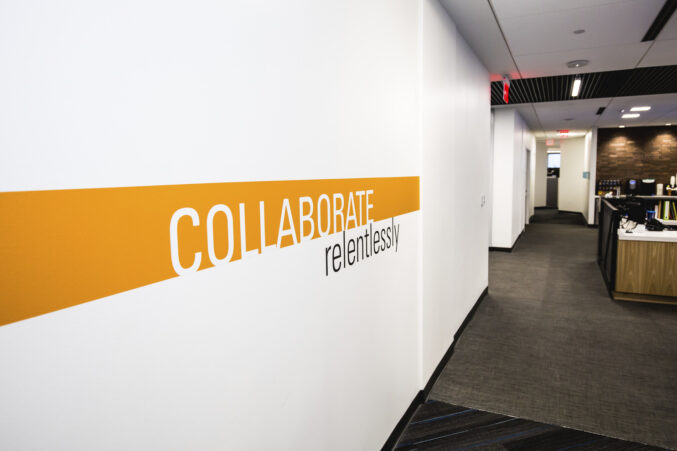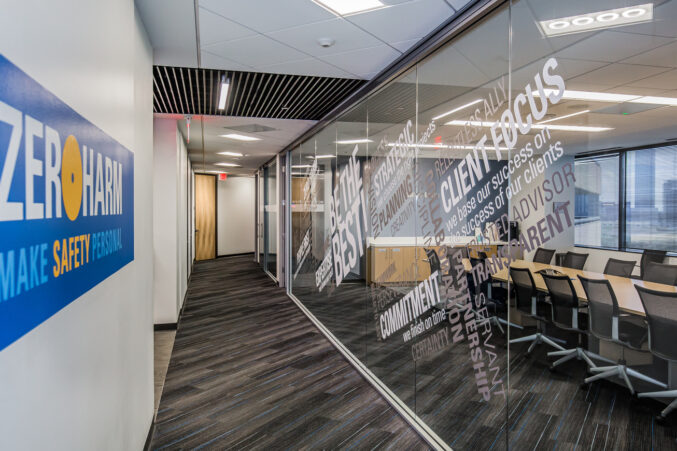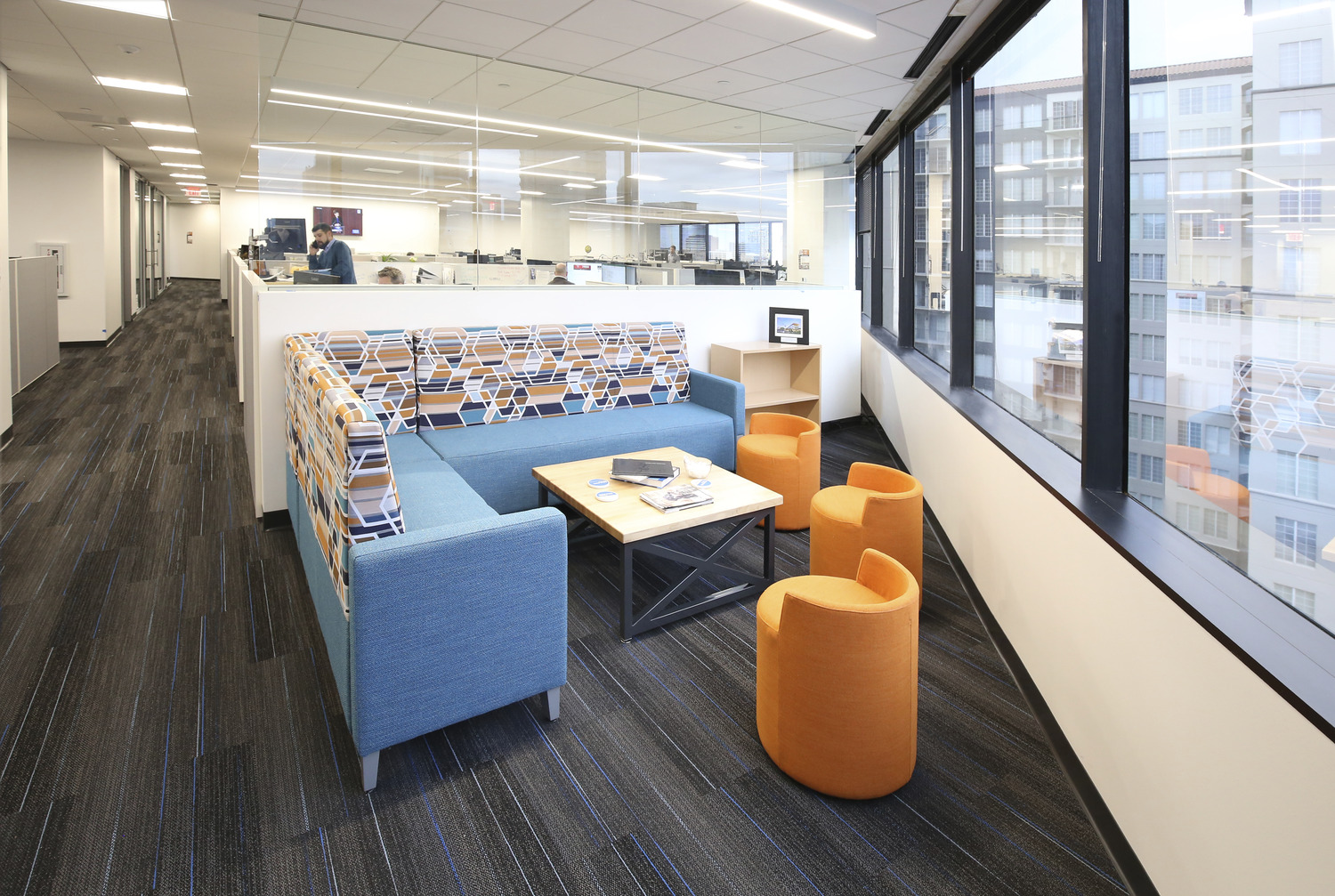Believe it or not, it’s been over one year since the COVID-19 pandemic upended our world. Like many industries, the commercial real estate market was heavily impacted as the workforce realigned its business and operational processes to stop the spread of the virus by quickly shifting to remote work and reexamining the workplace for the new normal.

The onset of the pandemic gave many organizations the opportunity to discover new ways to operate including implementing remote work and reaping its benefits. Companies reduced overhead costs while temporarily closing offices, employees enjoyed their shortened commutes and businesses were able to experiment and utilize various technology platforms to limit in-person interaction.
As time progressed, remote work also introduced challenges for organizations that rely on in-person interaction to achieve business goals. Employees experienced strains on their health and wellbeing, new hires missed out on valuable on-the-job training and learning opportunities, and the lack of in-person interactions and authentic collisions began to take a toll on corporate cultures.
As an essential business, Balfour Beatty’s project sites and offices remained opened and our safety operations were modified to meet the necessary measures outlined by health and government agencies to stop the spread of COVID-19. While our project teams continued to safely work on-site throughout the pandemic, office employees were encouraged to work remotely by utilizing communication platforms to keep our connective culture intact and continue to deliver projects entrusted in us to build.

Recently, Balfour Beatty’s operations in Dallas weighed the pros and cons of a year-long remote work policy for our office team members. With vaccinations increasing and transmission rates declining across the state, our leadership made the decision to offer a safe and flexible return-to-work policy for team members.
Balfour Beatty’s return to work policy for office team members follows Centers of Disease Control and Prevention (CDC) and Occupational Safety and Health Administration (OSHA) guidelines, in addition to safety measures outlined by local, state, and federal agencies to continue our job in stopping the spread of COVID-19. With these protocols in place, the re-opening of our offices has been a safe and enjoyable transition to the new normal. Our team has been pleased with the flexibility to engage in person again while implementing six feet of physical distancing and wearing personal protective equipment like face coverings.
We are certainly not alone in our decision to implement return-to-work operations. As a general contractor, we have seen the demand for commercial real estate increase, both in terms of Requests for Proposals (RFPs) and briefings from local economic development chambers. As Bill Cawley, Chairman and CEO of Cawley Partners, recently quotes in D Magazine, “…the DFW market [real estate] will be in recovery by mid-summer and very active by later this year. Corporations are going to move to Dallas in greater numbers than we have ever seen.”

As vaccinations become more readily available to adults across the nation, and infection rates declining, development and construction activities are expected to increase. With these advancements, many companies are beginning to announce their plans for the new modern workplace. Google recently announced a plan to invest $7 billion in US real estate, including office expansions and data centers. Google CEO Sundar Pichai states, “Coming together in person to collaborate and build community is core to Google’s culture, and it will be an important part of our future.”
Similarly, Microsoft recently announced that workers would be allowed to return to their headquarters while they continue to evaluate their future remote work policies. Even with a flexible work policy, they view “…working from home part of the time (less than 50 percent) as standard for most roles.”
Moving forward, Balfour Beatty will implement flexible work policies that give the opportunity for team members to tailor their working environment to their specific needs and job role responsibilities. Employees want flexibility and 2020 demonstrated the workforce’s ability to contribute remotely, but the craze of eliminating on-site office operations altogether has been greatly exaggerated.
Eric Kruger is Balfour Beatty’s executive vice president in Texas.





